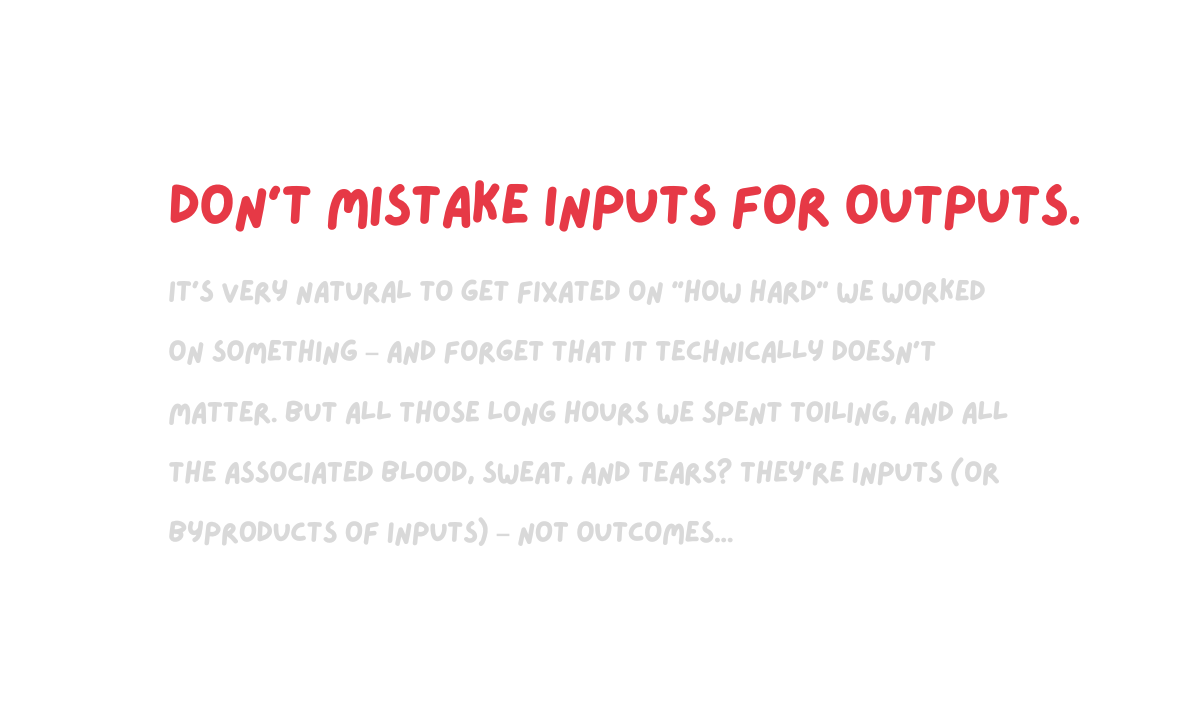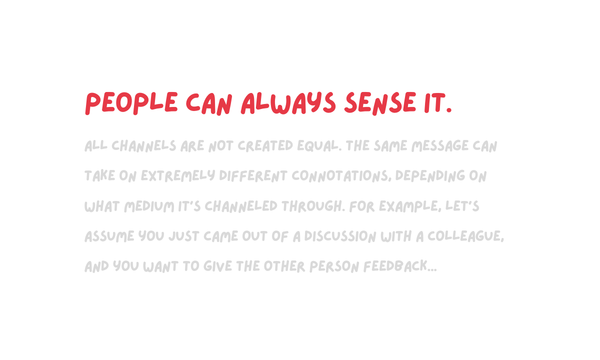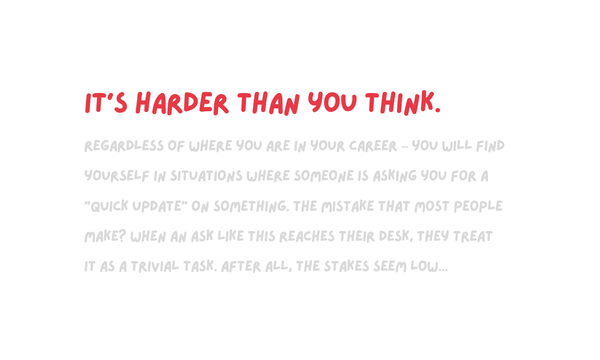The right (and wrong) way to write your performance review
It's only painful if you're doing it wrong.

It's annual review season for many people!
(OK, I assume you weren't jumping for joy in front of your screen.)
That's fine – I can't remember the last time someone was excited to write their self-assessment either.
Instead, most people find it to be either a cringey exercise, or a taxing chore. Or both.
But maybe, just maybe – it's also because we're not doing it right.
So before you start recounting your mighty accomplishments for the year?
Take a second, and ask yourself if you're making the following 3 mistakes:
👋 Join 5000+ readers and subscribe to Herng's Newsletter for free:
Mistake #1: Focusing on the wrong outputs.
There was a period in my career where I often had to present to senior stakeholders.
As expected, most attendees in the room were vocal. Feedback and pushback were par for the course. It was rarely easy – and always stressful.
As a result? It had a funny effect on my psyche. Because over time, I found myself:
- Over-prepping (to ensure I was fully in control)
- Dreading constructive feedback (to not look bad)
- Praying for fewer questions (to reduce follow-ups)
And the strangest side effect coming out of all of this?
It's that I found myself increasingly focusing on the wrong output.
Because in my performance review notes, I found myself writing things like:
- ...Delivered a great presentation to X leader
- ...Got good comments from Y audience
- ...Received alignment from Z stakeholder
Look, these were not bad things. But they were the wrong things to optimize for.
Because your goal isn't to deliver a presentation and leave the room with a bunch of smiles and nods.
Your goal is to solve problems, and get yourself and your stakeholders closer to a robust solution.
And it doesn't matter if you got there via overwhelming consensus or vehement debate. That only matters for your ego.
(In fact, if it's overwhelming consensus? It's probably actually a red flag.)
Mistake #2: Focusing on outputs that are too far or too close.
The other mistake when it comes to articulating the impact of your work?
It's to either focus on outputs that are too far removed from your efforts...
...or to focus on outputs that are too tactical and operational.
For instance, imagine that you've worked on an analysis to help uncover revenue growth opportunities, and you're trying to document your impact.
What are outputs that are "too far?" They're outcomes that are clearly important, but hard to attribute back to you.
This would be saying things like:
- "Extended our market share by 3%"
- "Grew total traffic to our site by 20%"
- "Improved customer satisfaction by 10%"
It's not that your efforts didn't contribute to these outcomes. It's just that you cannot possibly take credit for moving the needle.
And if you insist on telling your story that way – you simply lose credibility.
On the other hand, some people over-correct and focus on outputs that are "too close."
For instance, this would include saying things like:
- Answered stakeholder questions at office hours
- Presented X analysis at various team meetings
- Drove weekly discussions with leadership
The problem with this?
While these outcomes can definitely be attributed to your efforts, they're not the actual objectives the business cares about. You need to push yourself to go further.
Otherwise? No one cares. You've just proven you've kept busy. But you're still a few steps away from actual impact.
On the other hand, when you get the balance right? It looks something like this:
- Helped team close 3 new deals by uncovering $xxxK in upsell opportunity
- Saved team ## hours per quarter by building an insights dashboard
- Helped secure marketing budgets by proving ROI of past campaigns
The difference? You're neither too far nor too close.
And that's the right balance.
👋 Subscribe for free to get Herng's newsletter directly in your inbox.
Mistake #3: Focusing on inputs, instead of outputs.
I've previously written about the trap of mistaking motion for progress.
It turns out that when it comes to recounting our own work? It's easy to fall into the same trap as well.
Because it's very natural to get fixated on "how hard" we worked on something – and forget that it technically doesn't matter.
But all those long hours we spent toiling, and all the associated blood, sweat, and tears?
They're inputs (or byproducts of inputs) – not outcomes.
It's not that they're unimportant. But they're just not what the business ultimately cares about.
Consider, for example, the following talking points:
- Drove 20 meetings to seek support for joint marketing ask
- Updated pricing analysis 7 times based on feedback
- Spent two weeks building a 20-page FAQ document
Again, it's not that no one cares. It's just that they're inputs, not outputs.
And while they might sometimes correlate with business outcomes? Not always. And it's dangerous to mix them up.
The right way to approach this? Just always remind yourself to articulate the "what" and the "how." They should always go hand in hand together.
Because one is about impact (the "what"), and one is about accountability (the "how"). And that's really all you need to tell a logical and coherent story.
So if you apply this principle, you'll end up with something like:
- Secured approval for budget ask (= what) by driving alignment meetings with key stakeholders (= how)
- Enabled leadership to make go/no-go decision on funding ask (= what) by building a robust pricing analysis (= how)
- Saved the ops team ## hours (= what) by building a self-service FAQ for the sales org (= how)
The best part about this?
If you push yourself to exercise this discipline, it helps you prioritize better in the future. You'll also find it easier to push back against low-value tasks.
(One caveat: before you call something "low-value," ask yourself this.)
Why? Because drawing connections between inputs and outputs will come naturally to you. It becomes a reflex.
You'll then be less likely to waste time on "red herring" inputs that actually don't lead to meaningful outputs.
And you'll be less likely to mistake motion for progress.


